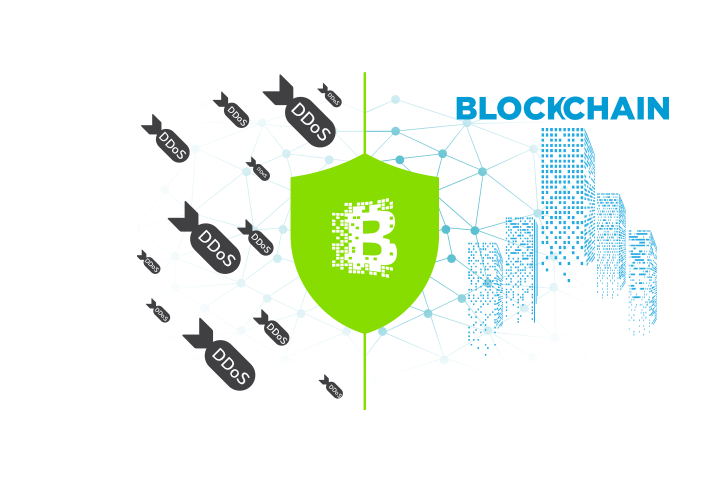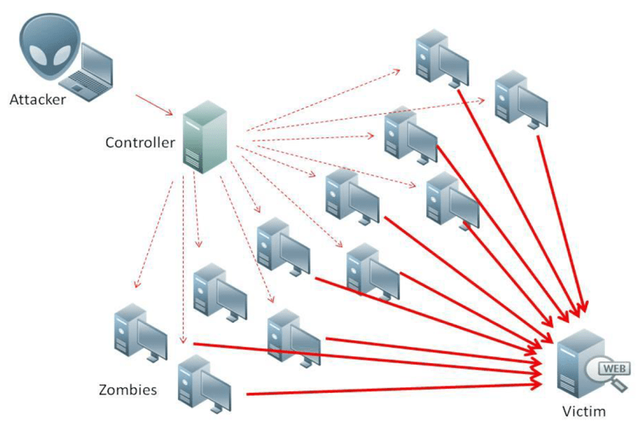Why is Blocin technology perfect for DDoS attacks .. ??
The issues of piracy and cyber attacks are now more than ever before. Wherever I turn you almost read about incidents of piracy against some big companies. Half of the US population was at risk during the Equifax breakthrough. The Securities and Exchange Commission was hit by the massive EDGAR breakthrough in 2016, and Deloitte's recent breakthrough appears to be much worse than it initially was. As pirates continue to make progress on most security platforms, the world of the Internet seems to need a new and better solution, and it may be the solution. Yes, we will trust the blocin when it comes to the future of Internet security.
The many problems of centralization
One of the very effective piracy (DDoS) is called ". During a DDoS attack, a group of computers attack a single server or network. Where devices overwhelm the victim requests and packets that overwhelm the processor in the end, so that the service to stop the server and users of its services. In order to stop such attacks, traditional software platforms are often unable to handle the huge amount of data after a single system has been hacked by other systems quickly. Thus, traditional servers are unable to control the massive data flow of devices and are often overcome. In addition, CDN services may be very expensive, and conventional systems are limited in approach and feasibility, but can also be incredibly expensive, depending on quality of service. Most corporate protection services provide site-specific servers worldwide to access the site from any machine that can be relatively fast. These traditional servers can be very expensive because of data-rich site expectations at this time, as these services cost for every gigabyte. So a lot of traffic on the Internet could cost companies millions in just hours.
Introduction of plocin technology
Blocking technology has created a new way to stop DDoS attacks, while at the same time changing the way in which CDN services are provided. This is done through decentralization - or the process of transferring information to many devices involved in a connected database environment. There is no doubt that the technology of plocin is a distributed industry. Gladius, the Balkan-based Internet security platform in the United States, is preparing to introduce this kind of decentralized system. The aim is to reduce the unused Bandwidth between participants and create a CDN system for disaster mitigation. The company will use the unused Bandwidth to end DDoS attacks and accelerate websites. In other words, users will be able to rent Bandwidth, get paid for it, and help protect and speed up websites. The Gladius platform uses the most important aspects of traditional DDoS protection while providing superior protection and CDN services at more reasonable rates.
How does the platform work?
Gladius Platform has established specialized and distributed platforms that serve multiple functions. This protects against DDoS attacks by acting as a market that provides the creation of programs that suit individual needs. In addition, Gladius allows users to monetize the unused Bandwidth to create a range of bandwidth that is more capable of handling the flow of large amounts of data, requests and traffic that characterize DDoS attacks. In contrast to traditional platforms, Gladius provides direct contact with end-users and internal developers, meaning that those who want protection can have advanced dedicated security managed within the platform.

